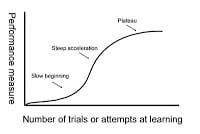When “Owning It” Is Harder Than it Sounds
Because how do you write about the things that aren’t yours to tell? How do you begin to separate what is yours and what isn’t?
It is a tricky proposition, this. And not only because of the risk of hurting someone I love, but because of what it means to me. Sorting through the seminal memories and moments in my life means really looking hard at where my head was, where my heart was, and what I knew and wanted at the time. It would be easy to look back with the accumulation of experience and wisdom riding shotgun and nod knowingly in the direction of what should have been, but that doesn’t make for a true story. It smacks of justification or pity-partying and paints a picture of Right and Wrong that doesn’t exist in life, to be sure.
The hardest bit is in the owning of my entire, smelly backpack of crap and roses.
Own it, someone says, urging us to stand up for ourselves and not be ashamed of who we are. It sounds empowering – a battle cry for my generation. Owning it is frightening.
Owning it means I acknowledge an attachment to the story and once I’m attached to something, the idea that it could be taken away is frightening. Something owned can also be un-owned. Writing about other people’s shit is the epitome of non-attachment. It says, “That isn’t mine, but I’ll tell you all about it and together we can exchange looks expressing how happy we are that it isn’t ours.” There is a complicity inherent in telling someone else’s story. Telling my story – owning it – feels very lonely and vulnerable.
Owning it also opens me up to the risk of becoming defined by the story I tell; having it morph into a shorthand by which other people describe me or think they ‘know’ me. The complicity has shifted to include everyone else but me as soon as I own my story and tell it honestly.
I’ve discovered that it is so much easier to solve someone else’s problems than it is to deal with my own. I once told a friend. She agreed. And now, when I sense the urge to find the cracks in someone else’s armor, I am prompted to wonder whether it is because I am ignoring my own.
Ultimately, the only lens through which I can see life is my own, and that means that the only story I have the right to tell is mine. Anything else is just make-believe. And, it turns out, I’m not much of a fiction writer, so I guess I’ll just keep sifting through to find the stories that are mine.






This is timely, as I've been contemplating what my next book might be, and not be, "about." I do think we gain insights into ourselves by looking at each other's stories, but "telling" their story isn't really the point.
You're one of the wisest people I've ever met. Keep going.